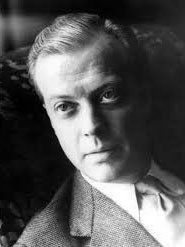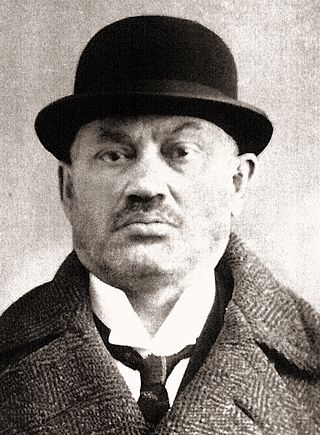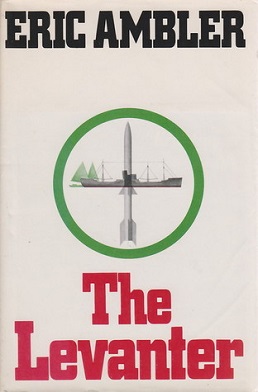
Eugene Victor Debs was an American socialist, political activist, trade unionist, one of the founding members of the Industrial Workers of the World (IWW), and five times the candidate of the Socialist Party of America for President of the United States. Through his presidential candidacies as well as his work with labor movements, Debs eventually became one of the best-known socialists living in the United States.

John Warnock Hinckley Jr. is an American man who attempted to assassinate U.S. President Ronald Reagan in Washington, D.C. on March 30, 1981, two months after Reagan's first inauguration. Using a .22 caliber revolver, Hinckley wounded Reagan, police officer Thomas Delahanty, and Secret Service agent Tim McCarthy. He critically wounded White House Press Secretary James Brady, who was left permanently disabled.
The Carl Hamilton novels is a book series by Swedish author and journalist Jan Guillou centered on the fictional Swedish spy Carl Hamilton. The main character is an elite military officer working for the Swedish Security agency and Intelligence agency during the end of the Cold War, residing in Stockholm but active internationally.

The Mask of Dimitrios is a 1944 American film noir directed by Jean Negulesco and written by Frank Gruber, based on the 1939 novel of the same title written by Eric Ambler.

Passage of Arms is a 1959 novel by Eric Ambler.

Eric Clifford Ambler OBE was an English author of thrillers, in particular spy novels, who introduced a new realism to the genre. Also working as a screenwriter, Ambler used the pseudonym Eliot Reed for books cowritten with Charles Rodda.

Yevno Fishelevich Azef was a Russian socialist revolutionary who also operated as a double agent and agent provocateur. He worked as both an organiser of assassinations for the Socialist Revolutionary Party and a police spy for the Okhrana, the Russian Empire's secret police. He rose through the ranks to become the leader of the Socialist Revolutionary Party's terrorist branch, the SR Combat Organization, from 1904 to 1908.

The Dark Frontier (1936) is Eric Ambler's first novel, about whose genesis he writes: "... Became press agent for film star, but soon after joined big London advertising agency as copywriter and 'ideas man'. During next few years wrote incessantly on variety of subjects ranging from baby food to non-ferrous alloys. Have travelled in most countries of Europe, been stranded in Marseilles and nearly drowned in the Bay of Naples. Decided, on a rainy day in Paris, to write a thriller. Result was The Dark Frontier."
The World Union of National Socialists (WUNS) is an organisation founded in 1962 as an umbrella group for neo-Nazi organisations across the globe.

Aleko Konstantinov was a Bulgarian writer, best known for his character Bay Ganyo, one of the most popular characters in Bulgarian fiction.
The Brotherhood of Evil is a group of DC Comics supervillains, archenemies of the original Doom Patrol and the Teen Titans and enemies of the Justice League.

Back in the USSA is a 1997 collection of seven short stories by English writers Eugene Byrne and Kim Newman, which was published by Mark V. Ziesing Books. The title is a reference to the song "Back in the U.S.S.R." by The Beatles. The stories are linked through their setting, an alternate history of the twentieth century in which the United States experienced a communist Second Revolution in 1917 and became a communist superpower, whereas Russia did not. Six of the stories first appeared in Interzone magazine, and the concluding story in the sequence, "On the Road", was written especially for the collection.

The League of Blood Incident was a 1932 assassination plot in Japan in which extremists targeted wealthy businessmen and liberal politicians. The group chose twenty victims but succeeded in killing only two: former Finance Minister and head of the Rikken Minseitō political party, Junnosuke Inoue, and the Director-General of Mitsui Holding Company, Dan Takuma.

A Man (1979) is a novel written by Oriana Fallaci chronicling her relationship with the attempted assassin of Greek dictator George Papadopoulos. The book is a pseudo-biography about Alexandros Panagoulis written in the form of a novel. Fallaci had an intense romantic relationship with Panagoulis. She uses the novel to put forth her view that Panagoulis was assassinated by a vast conspiracy, a view widely shared by many Greeks.

Reign of Terror is a 1949 American spy thriller film directed by Anthony Mann and starring Robert Cummings, Richard Basehart and Arlene Dahl. The film is set during the French Revolution. Plotters seek to bring down Maximilien Robespierre and end his bloodthirsty Reign of Terror.

The Wreck of the Mary Deare is a 1959 Metrocolor British-American thriller film directed by Michael Anderson and starring Gary Cooper and Charlton Heston, and featuring Michael Redgrave, Cecil Parker, Richard Harris and John Le Mesurier. The screenplay by Eric Ambler was based on the 1956 novel of the same name by Hammond Innes.

In the dystopian novel Nineteen Eighty-Four (1949), by George Orwell, Emmanuel Goldstein is the principal enemy of the state of Oceania. The political propaganda of The Party portrays Goldstein as the leader of The Brotherhood, a secret, counter-revolutionary organization who violently oppose the leadership of Big Brother and the Ingsoc régime of The Party.

The Socialist Revolutionary Party, or the Party of Socialist-Revolutionaries, was a major political party in late Imperial Russia, and both phases of the Russian Revolution and early Soviet Russia.

The Levanter is a 1972 novel by Eric Ambler.
















